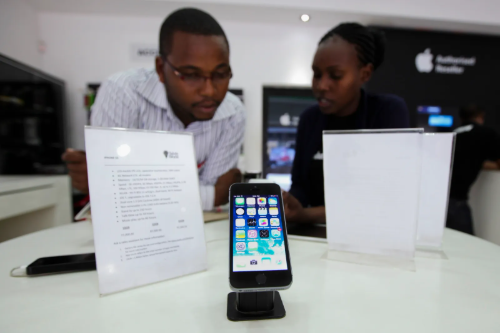Nigeria’s Digital Divide Widens as Internet Adoption Stalls

TLDR
- Nigeria’s telecommunications sector is experiencing a structural disconnect: data revenues are surging, but internet adoption is slowing
- Despite strong consumption among existing users, internet subscriptions fell by over 1 million between January and June 2025
- Policy disruptions, such as the temporary suspension of NIN verifications by NIMC in June, further worsened the slowdown
Nigeria’s telecommunications sector is experiencing a structural disconnect: data revenues are surging, but internet adoption is slowing as rising smartphone costs and data tariffs price out low-income users.
Despite strong consumption among existing users, internet subscriptions fell by over 1 million between January and June 2025, according to data from the Nigerian Communications Commission (NCC).
Telcos like MTN and Airtel are posting double-digit data revenue growth. MTN’s data income jumped 69.2% year-on-year, while Airtel’s active data users rose to 29.3 million. Yet Nigeria’s total active internet users dropped from 141.6 million to 140.6 million in the same period.
Device affordability is a core issue. Entry-level smartphones now retail for ₦200,000–₦220,000, up from ₦120,000–₦180,000 earlier in the year. Even secondhand iPhones have climbed beyond ₦130,000, cutting off access for many. Paired with a 50% hike in data tariffs, the cost barrier is pushing users to ration data and deterring new users from coming online.
Policy disruptions, such as the temporary suspension of NIN verifications by NIMC in June, further worsened the slowdown, freezing new SIM registrations. Smartphone penetration may be growing among existing users, but new internet user growth is stalling.
Daba is Africa's leading investment platform for private and public markets. Download here
Key Takeaways
Nigeria’s telecom sector faces a paradox: record data revenue and shrinking user base. While telcos benefit from higher average revenue per user (ARPU), the broader ecosystem risks stagnation as affordability becomes a major barrier to digital access. Smartphone sales declined 7% in H1 2025, driven by currency devaluation, inflation, and global supply constraints. The average Nigerian now needs to spend more than three months’ minimum wage to buy an entry-level device. This hardware inflation, combined with higher data tariffs, has narrowed the entry funnel for millions of unconnected citizens—especially in rural and low-income areas. This shift has long-term implications. As existing subscribers consume more data, operators may continue to post short-term growth. But a shrinking addressable base threatens scale, innovation, and inclusivity. It could also widen the digital divide, undermining national goals for digital literacy, fintech adoption, and e-government services. To reverse this trend, targeted policy interventions may be needed: device financing schemes, data subsidy programs, or import duty reviews. Without action, Nigeria’s digital economy risks becoming one of deepening inequality—where broadband access is abundant, but not universal.

Next Frontier
Stay up to date on major news and events in African markets. Delivered weekly.
Pulse54
UDeep-dives into what’s old and new in Africa’s investment landscape. Delivered twice monthly.
Events
Sign up to stay informed about our regular webinars, product launches, and exhibitions.




